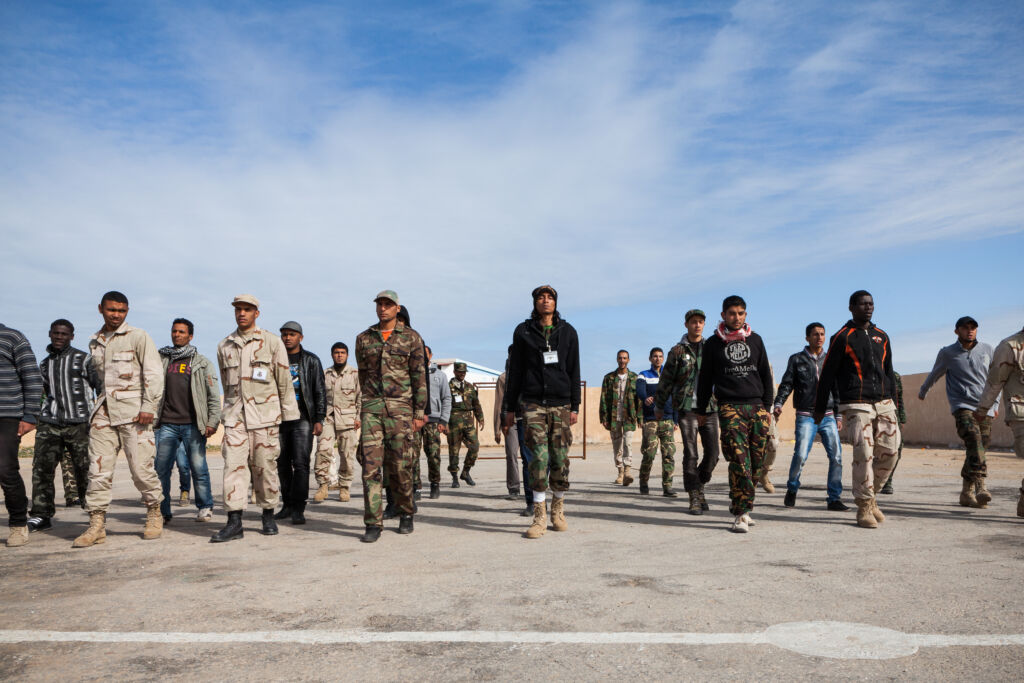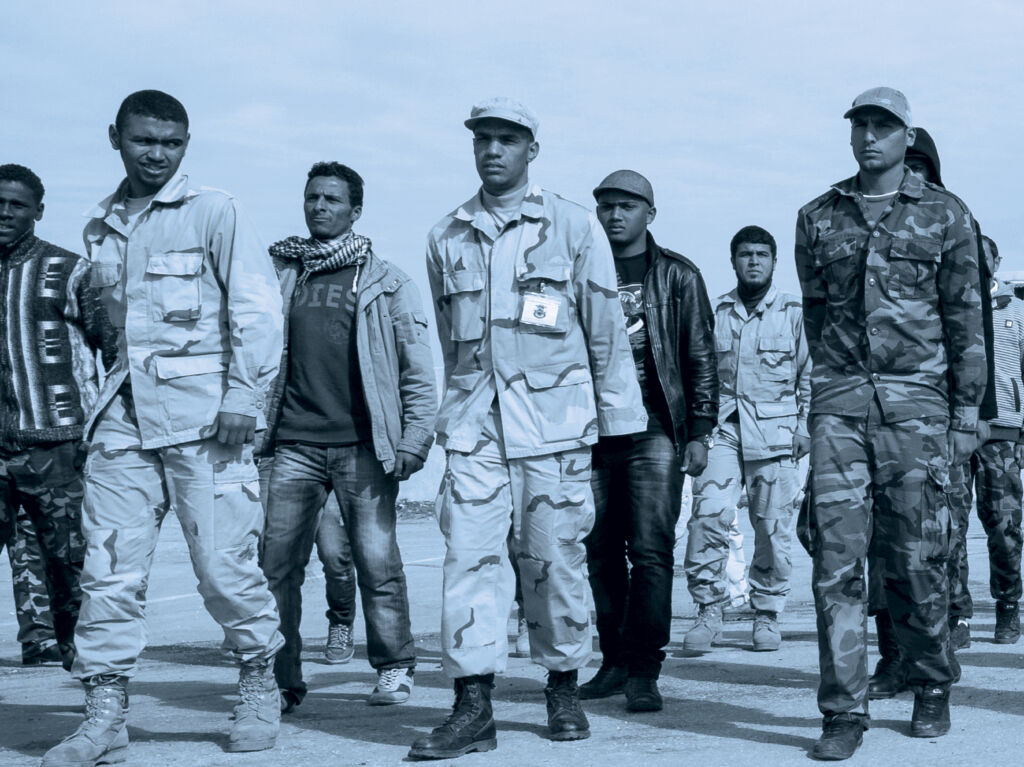“Section 83.01 of the Criminal Code defines terrorism as an act committed ‘in whole or in part for a political, religious or ideological purpose, objective or cause’ with the intention of intimidating the public’…with regard to its security, including its economic security, or compelling a person, a government or a domestic or an international organization to do or to refrain from doing any act.’ Activities recognized as criminal within this context include death and bodily harm with the use of violence; endangering a person’s life; risks posed to the health and safety of the public; significant property damage; and interference or disruption of essential services, facilities or systems.” - Department of Justice, Government of Canada1
The NATO attack on Libya in March 2011, which was led by Canada and destroyed the Libyan government, state and much of the country’s infrastructure arguably makes Canada a terrorist nation, according to its own Department of Justice’s definition of terrorism, provided above.: All of the conditions outlined by the Department of Justice apply to Canada’s attack on Libya. Canadian Lieutenant-General Charles Bouchard was commander of NATO's war on Libya, known as Operation Mobile, on which Canada spent $347 million under Stephen Harper’s Conservative government. The Canadian ship HMCS Charlottetown carried 240 officers and sailors to Libya. Ten fighter jets, one helicopter and 200 Canadian Forces members were also sent to Libya. Canadian planes bombed Libya, its troops carried out psychological warfare operations and its special forces helped Libyan rebels on the ground. Members of Parliament from the Liberal Party, New Democratic Party and Bloc Québécois all voted to support Operation Mobile.
Canada’s CF-18 jets have dropped 696 bombs on Libya as part of the NATO attack which included 10,000 bombing sorties that killed and wounded more than 5,600 civilians (up until July 2011 alone) and destroyed vital civilian infrastructure, particularly water facilities, leaving four million Libyans (out of a population of six million) without potable water. NATO bombing demolished hospitals, universities, homes and the entire town of Sirte (population 100,000). These are clearly war crimes and crimes against humanity that Canada and NATO are responsible for. The NATO attack lasted seven months until October 2011, eradicating Libya’s central government, society and state and handing the country over to gangs of terrorists, criminals, Islamic fundamentalists and American operatives who started fighting with each other, pushing Libya into an abyss of violent anarchy that continues today, a decade later.
Libya went from being a prosperous country with Africa’s highest standard of living (54th on the U.N.’s Human Development Index in 2010, which totalled 174 countries) and a welfare state to becoming one of the poorest and most devastated nations in the world today, where slavery abounds and traffickers prey on millions of people trying to escape to Europe in boats that often sink. Scott Taylor tells me, “Lt. General Bouchard bears at least partial responsibility for the crimes committed by NATO in Libya.” Taylor, who calls the aftermath of NATO’s Libya war a “catastrophe,” is a Canadian journalist who specializes in military journalism and war reporting.
He is editor and publisher of Esprit de Corps magazine and a former infantry soldier in the Canadian Forces.
The NATO intervention derived from a series of lies spread mainly by the U.S. government about the intentions of Libya’s ruler, Muammar Gaddafi. U.S. President Barack Obama and Hilary Clinton, his Secretary of State, claimed that Gaddafi was going to commit “genocide” against a group of rebels who had taken up arms against him in the city of Benghazi and that he was already bombing protestors from the air. Both of these assertions were untrue. As Professor Alan J. Kuperman, who teaches global policy at the University of Texas, clarified in 2011, “Gaddafi did not ever threaten civilian massacre in Benghazi as Obama alleged.”
Obama’s bombing accusation against Gaddafi was refuted by his own Secretary of Defence, Robert Gates. To purportedly prevent Gaddafi from carrying out genocide and stop him from bombing Libyans, Clinton had the United Nations Security Council approve enforcement of a “no-fly zone” in Libya in the form of Resolution 1973. Obama and Clinton then used this very limited resolution to launch an all-out war on Libya which enormously exceeded the scope of a no-fly-zone.
"You can’t wage a war against a tactic. Terrorism is the weapon of the weak and disenfranchised against the powerful. We [the U.S.] didn’t—and don’t now—care two hoots in hell about terrorism.” Conn Hallinan
As Taylor puts it, “The Canadian government willingly accepted the false narrative generated by France, the U.K. and the U.S. to justify armed intervention in Libya. The U.N. Resolution authorizing a no-fly zone enforced by NATO was ignored in the intended scope and used to mount airstrikes against Gaddafi loyalists.” Taylor adds in a September 2016 article: “That’s right folks, NATO dropped bombs on Libyans to prevent Gaddafi from dropping bombs on Libyans.”
Taylor points out that a British parliamentary committee “roundly condemned” U.K. Prime Minister David Cameron’s role in the Libya disaster in a 2016 report and asks “Where is the clamour in Canada for a similar investigation into our country’s role in that massive failure?...Cameron is not the only one responsible for the ongoing deaths and suffering in Libya. He has Canadian company in Harper and [John] Baird, [foreign affairs minister under Harper].”
Far from any censure, Harper awarded Bouchard the Order of Canada and gave him a military jet flyover in Ottawa. This is when even U.S. President Obama, whose bidding Canada was doing in Libya, called the NATO war, “a shit show” and blamed Britain and France for it although the attack would not have happened without Obama’s approval.
“There is simply no justification for the NATO attack on Libya” Conn Hallinan tells me. He has been a columnist with Foreign Policy in Focus, a project of the Washington D.C.-based Institute for Policy Studies. Hallinan has written on foreign affairs for 50 years and retired in September. “It is a violation of international law to attack a country that does not pose a threat to other countries” he continues, “No one argued that Libya posed a threat to its neighbours or other nations, only that Gaddafi had threatened his people.

“The whole premise was a violation of international law and unfortunately, the U.N. was involved. Given that so many people are involved, it is unclear who one would prosecute, but one could start with Hilary Clinton, the person who pushed the war. Indeed, it was called ‘Hilary’s war’ in Washington. I would add the leadership of France and Italy, the former for starting the bombing, the latter for coordinating the bombing out of bases in Southern Italy.”
The real reason for the NATO invasion of Libya had to do with Western economic imperialism aimed at dominating Africa. Hallinan explains, “Libya was one of the last countries bordering the Mediterranean that was not a NATO member or a NATO ‘partner.’ Along with Syria, Libya has always been an independent actor in the region and many people in Washington and NATO have longed to end that status. I don’t think oil played a major role—but it is always a factor—but Washington has always been unhappy about Gaddafi’s effort to create an African investment bank and cooperative communications systems. The World Bank and the International Monetary Fund want to control international finance and they have a particular interest in developing agriculture in Africa for the West. European and Middle Eastern countries have snapped up hundreds of square miles of prime agricultural land in Africa to start industrial farming to ensure their food supplies in a time of climate change. Gaddafi always got in the way of those organizations. The uprising [in Benghazi] was the excuse they were looking for.”
Taylor explains the Canadian part in this economic imperialism, Ottawa being a “junior” imperialist dominated by the U.S. Canadian foreign policy aims usually dovetail with those of the U.S. and U.K.: “I think you need to look no further than the SNC Lavalin scandal to realize that Canada has long had interest in developing Libyan oil and gas resources. Canada, like the other G8 countries, realized the looming threat of Gaddafi amassing gold reserves to create an African Union currency. This would have challenged the existing global banking system. With those gold reserves now outside Libya and the country awash in anarchy, that threat has been neutralized.”
The Canadian/NATO attack on Libya spread terrorism within and outside the country to Syria and several African states— especially Mali, where France had to send troops once more to prevent the military dictatorship’s fall to Islamic fundamentalists armed with weapons from Gaddafi’s looted arsenal and from NATO’s own extensive distribution of weaponry to Gaddafi’s opponents. “The NATO-backed rebellion saw the emergence of such extremist Islamic groups as the al Nusra Front and subsequently the anarchy opened the door to both al Qaeda and then Daesh (a.k.a. ISIS or ISIL) to get footholds in Libya,” emphasizes Taylor.
“The result of the invasion and overthrow has been a disaster,” concurs Hallinan. “The massive weapon caches of Gaddafi fuel insurgents and terrorists throughout Africa. And as [veteran journalist] Seymour Hersh showed, Libya was the key to the ‘rat line’ of arms going to Syria. The U.S., British, French and Israelis were using Gaddafi’s weapons to arm Islamic fundamentalists in Syria to wage war on the Bashar Al-Assad government. That, in turn, generated millions of refugees who are currently freezing to death on the Polish border. And insurgents in the trans-Sahel [an area comprising nine African countries] are using those weapons to overthrow governments or ignite civil wars. But then again, we [the U.S.government] knew that would happen. It is easier to rule during times of chaos than times of calm.”
Hallinan rejects the credibility of the “war on terror” entirely considering it “nothing but an excuse to invade Afghanistan and Iraq. You can’t wage a war against a tactic. Terrorism is the weapon of the weak and disenfranchised against the powerful. We [the U.S.] didn’t—and don’t now—care two hoots in hell about terrorism.” That certainly applies to Canada and NATO as well. As far the Western alliance goes, terrorism is an excuse to be a terrorist.







